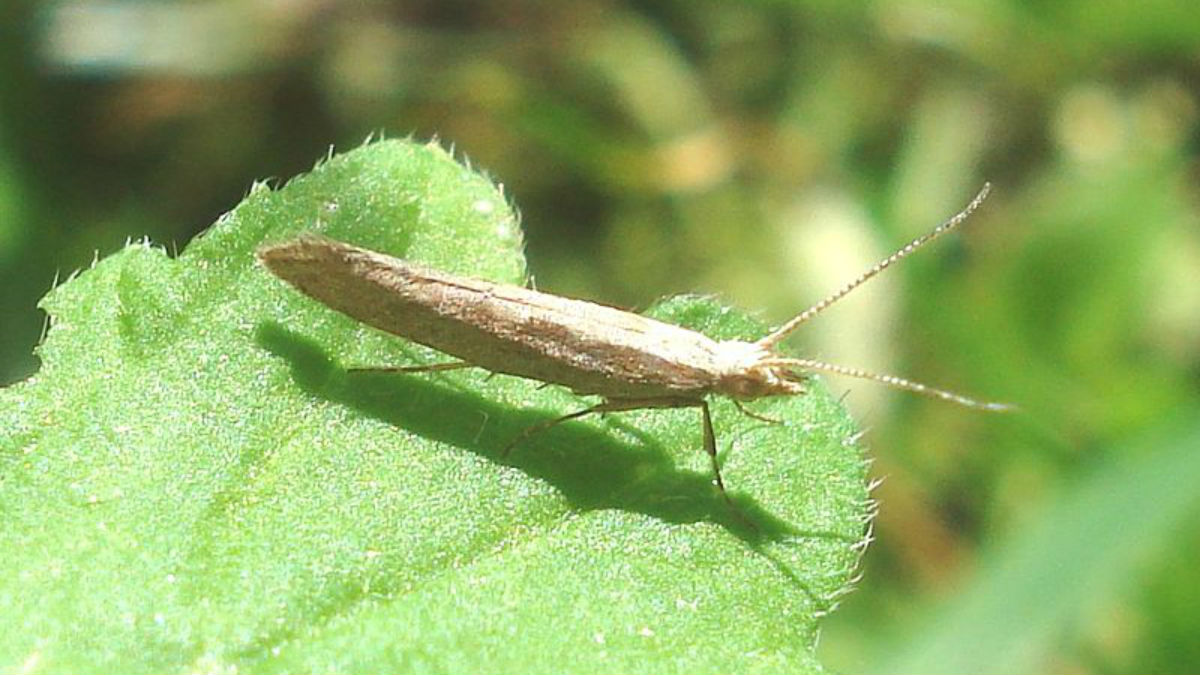UK faces moth infestation of 'biblical' proportions
Tens of thousands of 'super pest' diamondback moths could destroy Britain's cabbage and cauliflower harvests

A free daily email with the biggest news stories of the day – and the best features from TheWeek.com
You are now subscribed
Your newsletter sign-up was successful
Britain is said to be facing a moth infestation of “biblical” proportions that threatens to devastate crop harvests.
The diamondback moths, which are arriving from continental Europe in their tens of thousands, are described by experts as “super pests” because they are resistant to numerous insecticides.
They feed on cabbages and cauliflower and could cause severe damage, even leading to crops being lost.
The Week
Escape your echo chamber. Get the facts behind the news, plus analysis from multiple perspectives.

Sign up for The Week's Free Newsletters
From our morning news briefing to a weekly Good News Newsletter, get the best of The Week delivered directly to your inbox.
From our morning news briefing to a weekly Good News Newsletter, get the best of The Week delivered directly to your inbox.
Thousands more are expected to make their way to the UK and scientists are said to be frantically trying to find ways to prevent them from wreaking havoc.
The Sun today published the news on its front page, warning that it was “time to mothball the EU” and urging the public to vote Leave in order to "protect our country … and our cabbages".
However, Twitter account @migrantmothUK, which on Saturday reported a two-mile cloud of diamondback moths in Herefordshire, said the insects were unlikely to have originated from an EU country. They are more likely, they suggest, to be Russian.
Steve Nash, who runs the account, told the Sun that the numbers could escalate in the coming weeks. “Once the progeny of this influx arrives in mid-July, numbers could be biblical,” he said.
A free daily email with the biggest news stories of the day – and the best features from TheWeek.com
Scientist Steve Foster, from agricultural research institution Rothamsted Research, said the swarms are like plagues of locusts that can appear “like a brown cloud", the BBC reports.
Foster advises growers to seek guidance before spraying their crops as the resistant bugs might well survive at the expense of insects such as wasps and ladybirds, which are beneficial to farmers.
-
 James Van Der Beek obituary: fresh-faced Dawson’s Creek star
James Van Der Beek obituary: fresh-faced Dawson’s Creek starIn The Spotlight Van Der Beek fronted one of the most successful teen dramas of the 90s – but his Dawson fame proved a double-edged sword
-
 Is Andrew’s arrest the end for the monarchy?
Is Andrew’s arrest the end for the monarchy?Today's Big Question The King has distanced the Royal Family from his disgraced brother but a ‘fit of revolutionary disgust’ could still wipe them out
-
 Quiz of The Week: 14 – 20 February
Quiz of The Week: 14 – 20 FebruaryQuiz Have you been paying attention to The Week’s news?
-
 Home Office worker accused of spiking mistress’s drink with abortion drug
Home Office worker accused of spiking mistress’s drink with abortion drugSpeed Read Darren Burke had failed to convince his girlfriend to terminate pregnancy
-
 In hock to Moscow: exploring Germany’s woeful energy policy
In hock to Moscow: exploring Germany’s woeful energy policySpeed Read Don’t expect Berlin to wean itself off Russian gas any time soon
-
 Were Covid restrictions dropped too soon?
Were Covid restrictions dropped too soon?Speed Read ‘Living with Covid’ is already proving problematic – just look at the travel chaos this week
-
 Inclusive Britain: a new strategy for tackling racism in the UK
Inclusive Britain: a new strategy for tackling racism in the UKSpeed Read Government has revealed action plan setting out 74 steps that ministers will take
-
 Sandy Hook families vs. Remington: a small victory over the gunmakers
Sandy Hook families vs. Remington: a small victory over the gunmakersSpeed Read Last week the families settled a lawsuit for $73m against the manufacturer
-
 Farmers vs. walkers: the battle over ‘Britain’s green and pleasant land’
Farmers vs. walkers: the battle over ‘Britain’s green and pleasant land’Speed Read Updated Countryside Code tells farmers: ‘be nice, say hello, share the space’
-
 Motherhood: why are we putting it off?
Motherhood: why are we putting it off?Speed Read Stats show around 50% of women in England and Wales now don’t have children by 30
-
 Anti-Semitism in America: a case of double standards?
Anti-Semitism in America: a case of double standards?Speed Read Officials were strikingly reluctant to link Texas synagogue attack to anti-Semitism